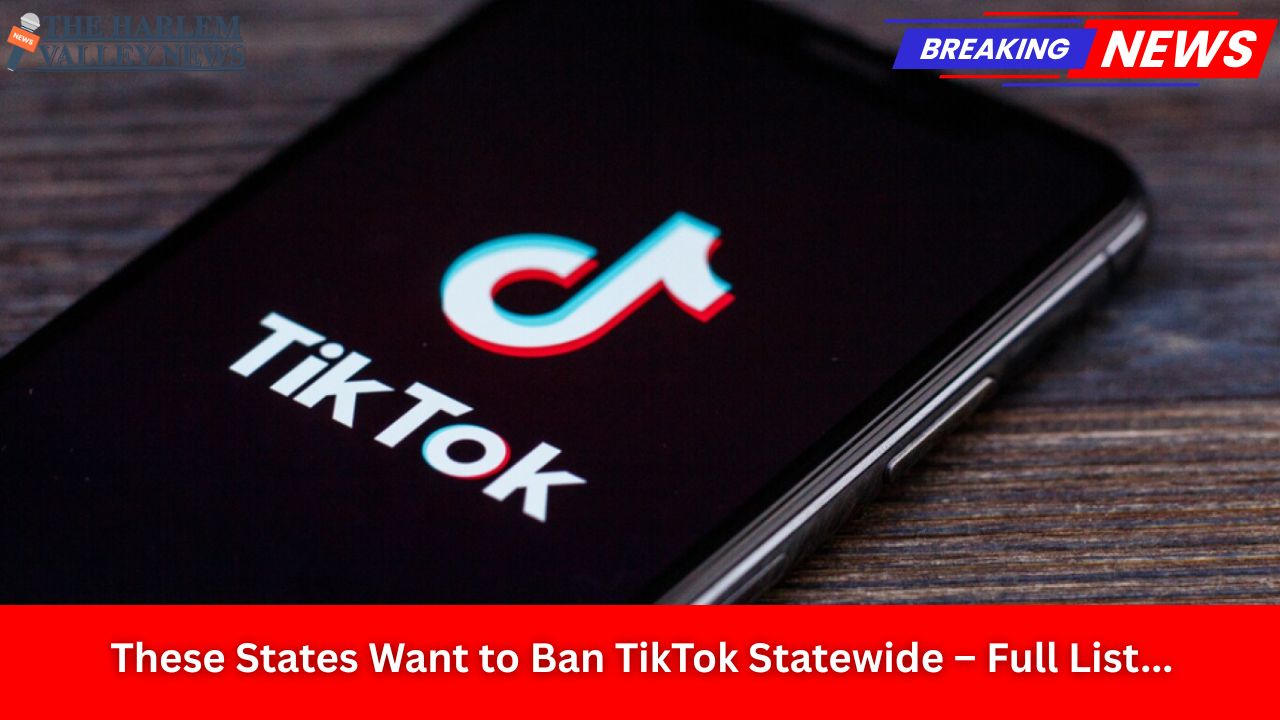Nevada, US: More than 30 states across the United States have taken decisive steps to ban TikTok statewide on government-issued devices due to mounting concerns about data security and the influence of the Chinese government. This wave of bans has gained momentum in recent years amid fears that the popular social media app could pose a threat to national security by collecting sensitive user information accessible by its China-based parent company, ByteDance.
The movement to restrict TikTok statewide began gaining traction as early as 2022 and has accelerated with new legislation and executive orders signed by various governors. States including Alabama, Arizona, Arkansas, Georgia, Idaho, Kansas, Maryland, Michigan, Montana, Nebraska, Nevada, New Hampshire, New Jersey, North Carolina, North Dakota, Ohio, Oklahoma, Oregon, South Carolina, South Dakota, Tennessee, Texas, Utah, Vermont, Virginia, Wisconsin, and Wyoming have implemented bans or severe restrictions on TikTok usage on state-owned devices and networks.
Montana notably became the first state to pass a comprehensive statewide ban that extended beyond government devices to restrict TikTok’s availability entirely within the state, although that particular ban faced legal challenges and has not fully gone into effect as planned. Other states have primarily focused their restrictions on government-issued devices or those connected to government networks. For example, Arizona specifically banned TikTok on all state-owned and state-leased IT devices with compliance plans to prohibit access on government work networks, including contractors and guests accessing state systems.
The bans aim to mitigate risks tied to data harvesting and potential influence operations believed to be directed by the Chinese government, which could access sensitive information such as passwords, location data, emails, and text messages from TikTok users. Many states have also extended these restrictions to include network bans that block TikTok’s use on state Wi-Fi and government internet infrastructure.
Some states have introduced exceptions for law enforcement or approved security uses, but generally, employees and officials are prohibited from downloading or using TikTok on devices owned or controlled by the state. These measures align with a broader national effort, including a federal ban passed into law in 2024, that demands ByteDance divest from TikTok or face a nationwide prohibition.
The federal Protecting Americans from Foreign Adversary Controlled Applications Act (PAFACA) took effect in January 2025, mandating the ban of TikTok unless its operations are sold to a U.S. entity. Although TikTok briefly suspended services in the U.S. in compliance, the ban has seen multiple delays and stays due to legal challenges and executive orders that have extended deadlines for divestiture or app removal.
Beyond state governments, several cities, including New York City, and universities have also banned TikTok on government-owned or institution-owned devices and networks, citing similar cybersecurity concerns.
With ongoing tensions surrounding data privacy and national security, these statewide bans on TikTok represent a significant front in the U.S.’s broader stance on foreign digital influence and the protection of user data. As of mid-2025, the trend suggests continued vigilance and more states may follow with similar prohibitions until a resolution about TikTok’s ownership and data safeguards is finalized.














Leave a Reply